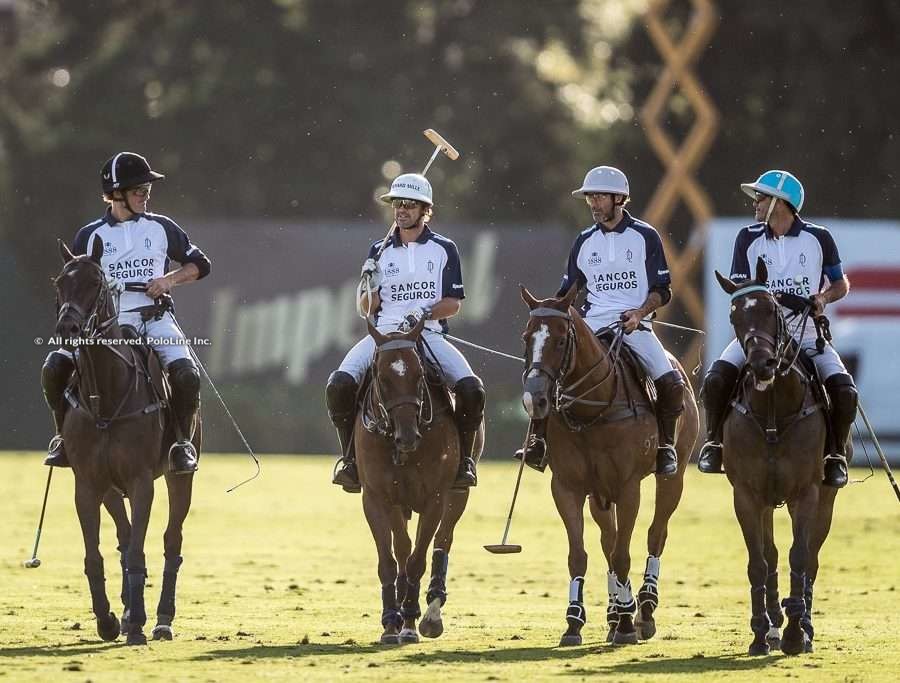It was suggested that the low intensity of the Zone A matches would affect them, that their horses would not reach the final with the desired rhythm, and so many other things. How many speculations like these have we heard over the years in the week leading up to the Argentine Open final? The reality is that most would hold true for the majority of polo teams we could analyse, but the current La Dolfina’s lineup, a team that came together in 2011, has long proved that they are different from the rest, and that they are seemingly not affected by standard preoccupations. They perform at such a level that they are always the favourites.
The team composed of Adolfo Cambiaso, David Stirling, Pablo Mac Donough and Juan Martín Nero, which at times has performed at a near perfect level, continues making history in the polo world—and it seems as if they have every intention of continuing. Winning the Argentine Open for seven consecutive years is a feat that is literally out-of-this-world. Not only has it not been accomplished since 1980, when Coronel Suarez achieved just that, but it is something that has never been done by a team with the same line-up. In Suárez’s case, the seventh year they won the title, they did so with a different line-up to the one that had claimed the six consecutive titles, from 1974-1979.
Therefore, the impact this La Dolfina team is having on polo history is far from understanding. La Dolfina boasts the best four players in the world in their respective positions, and a friendship that has been forged both on and off the field, and that certainly attributes to their success. But these ideas still fall short. The understanding they have of the game and Palermo’s number one ground is inspiring. It is rare to see any one of them badly positioned, out of rhythm, or striking the ball incorrectly.
Adolfo Cambiaso, the founder of the team, has been wise enough to adapt his game to the requirements of his teammates. If one analyses his career by only looking at his Triple Crown titles, we can see that the majority of them came when the team did not rely on his individual talent as the main weapon in the battle for victory. So far he has claimed sixteen titles in Palermo in 26 participations; half of those wins came in the last nine years.
The four La Dolfina players, it can be said, have followed this ideology—putting the team before the individual—and they have never stopped shining as a result. They give the impression that they are unbeatable, that no team can challenge them, and that they will always be the favourite.
For a sports fanatic and a reporter, there is no greater privilege than being a contemporary of the big guns, the players who write history and great teams. Today it is still hard to fully understand the totality of what these four players have achieved with La Dolfina, but it is even trickier to imagine their limitations.

